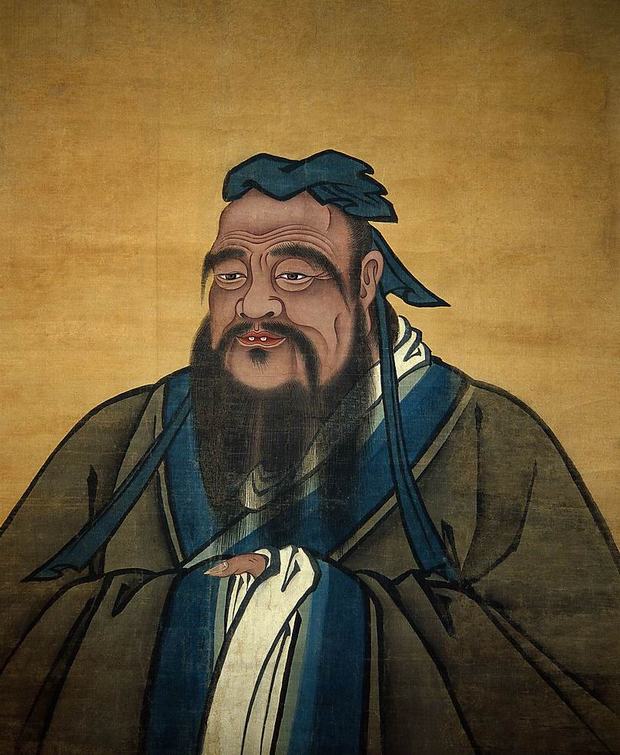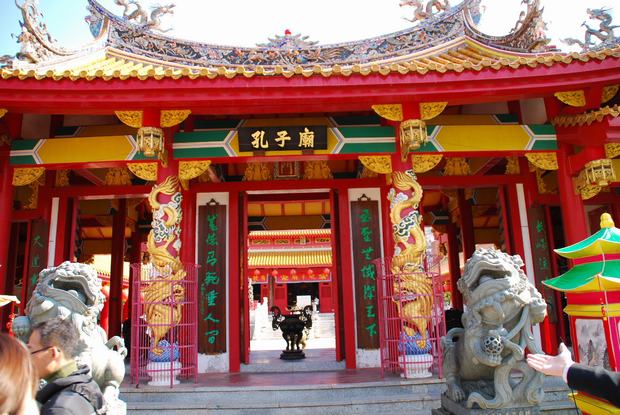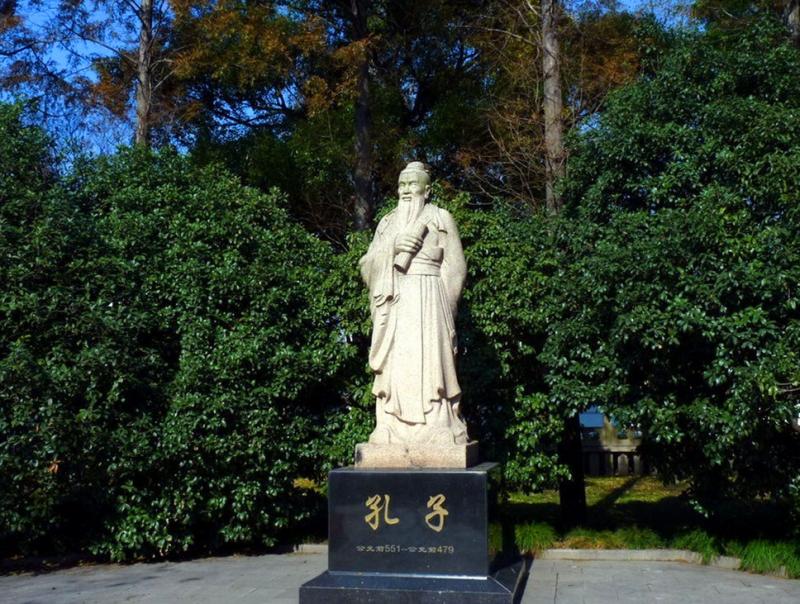Confucianism: Definition, Founder, Beliefs, and Symbols Unveiled
In this article, we will delve into the essence of Confucianism, exploring its definition, founder, beliefs, symbols, memes, while shedding light on its impact on society and its place within the realm of religion.
What is Confucianism?
Confucianism is a complex belief system and philosophy that originated in ancient China. It is named after its founder, Confucius, who lived during the Zhou Dynasty from 551 BCE to 479 BCE. Confucianism is not a religion in the traditional sense but is often referred to as a "way of life" or a "moral code" due to its emphasis on ethical conduct and social relationships. Confucianism has a rich and diverse history, with many interpretations and schools of thought that have developed over time.

When was Confucianism Founded, Who Founded Confucianism, and Where did Confucianism Originate?
Confucianism, one of the world's most influential philosophical and ethical systems, was founded in China in the 5th century BCE. It was founded by Confucius, a Chinese philosopher and politician, who believed in the importance of moral values and ethics. Confucius is often considered one of the most important figures in Chinese history, and his teachings have greatly impacted the country's culture and society.Confucius was born in 551 BCE in the state of Lu, in what is now modern-day China. He spent much of his life travelling throughout China, teaching his philosophy to anyone who would listen. Confucius believed in the importance of education, and taught that the pursuit of knowledge was essential to becoming a virtuous person. He also believed in the importance of family values and social harmony, and taught that individuals should strive to be kind and respectful towards others. Confucius Mansion, Confucius Cemetery, and Confucius Temple in Qufu, Shandong Province, Confucius's hometown, are the best place to learn Confucianism.
Beliefs of Confucianism
Confucianism has several key beliefs that guide human behavior and relationships. One of the central tenets of Confucianism is the concept of Ren, which emphasizes benevolence, humaneness, and the cultivation of virtues. The belief system also emphasizes the importance of filial piety, loyalty, righteousness, and the pursuit of knowledge. These beliefs are meant to help individuals become better people and contribute positively to society in various ways.Teachings of Confucianism
Confucianism places great importance on education and self-cultivation. It advocates for the pursuit of knowledge, self-improvement, and the development of moral character. Confucius believed that by cultivating oneself, individuals could contribute to the betterment of society. Confucian teachings also emphasize the importance of social harmony, hierarchical relationships, and the proper conduct of individuals in various roles and positions. These teachings are meant to help individuals live a meaningful and fulfilling life, and to contribute to the greater good of society in a more conscious and intentional way.The main themes of Confucianism are as following:
Ren (仁, Rén): In English, it means benevolence, charity, humanity and love. Kindness is the fundamental virtue of Confucianism and refers to love others.Yi (义, Yì): In English, it means right conduct, morality, duty to one's neighbor and righteousness. Its opposite is Li (利, Lì), profit, gain, advantage in English. As Master Kong said: "The gentleman understands Yi. The mean man understands Li (利, Lì)."
Li(礼, Lǐ): In English, it means ritual, propriety, good manners, politeness, ceremony and worship.
Shu (恕, Shù): In English, it means reciprocity, altruism, consideration for others, As Master Kong said: "What you don't want yourself, don't do to others".
Zhong (忠, zhōng): In English, it means doing one's best, conscientiousness and loyalty.
Xiao (孝, Xiào): In English, it means filial piety, to honor one's parents.
What is Neo-Confucianism?
Neo-Confucianism emerged during the Song Dynasty in the 11th century as a revival and reinterpretation of Confucian teachings. It incorporated elements from Taoism and Buddhism, resulting in a more metaphysical and spiritual dimension to Confucian philosophy. Neo-Confucianism placed a greater emphasis on the cultivation of the mind and the pursuit of moral perfection. This movement helped to reinvigorate Confucianism and cement its place in Chinese culture and society, leading to more in-depth studies and new interpretations of the philosophy.What are the Sacred Texts of Confucianism
The sacred texts of Confucianism are known as the "Four Books and Five Classics." The Four Books include the "Great Learning," "Doctrine of the Mean," "Analects," and "Mencius," which contain the teachings and sayings of Confucius and his disciples. The Five Classics comprise the "Book of Songs," "Book of Documents," "Book of Changes," "Book of Rites," and "Spring and Autumn Annals," which cover various subjects such as poetry, history, rituals, and divination. These texts are considered essential for understanding Confucianism and its teachings, and are still studied and revered by scholars and practitioners today, providing insights into the origins and development of Confucianism, as well as its application in modern society.

Who is Confucianist?
A Confucianist is an individual who adheres to the teachings and principles of Confucianism, which is a philosophical and ethical system that originated in China over two thousand years ago. Confucianism emphasizes the importance of personal and governmental morality, justice, sincerity, and respect for one's elders and others in positions of authority. It has had a profound and lasting impact on Chinese society, shaping the behavior, values, and ethical standards of individuals throughout history.Some of the most well-known Confucianists throughout history have played a significant role in shaping Chinese culture. These include Confucius himself, who is widely regarded as the founder of Confucianism, as well as Mencius, who further developed Confucian thought and emphasized the importance of education and moral cultivation.
Other notable Confucianists include Xunzi, who argued that human nature is inherently selfish and that moral education is essential to cultivate virtue, and Zhu Xi, who synthesized Confucianism with Buddhism and Taoism during the Song Dynasty.
Their ideas and teachings have had a profound influence not only on Chinese society but on the world at large, making them some of the most renowned and respected thinkers in history.
Is Confucianism a Religion?
The classification of Confucianism as a religion has been a topic of debate for many years. While it is true that Confucianism does not adhere to traditional religious practices or worship deities, it encompasses a vast array of ethical and moral teachings that have religious implications. This has led some scholars to consider it a philosophy or a way of life, rather than a religion, while others argue that it can be seen as a religious and spiritual tradition due to its profound influence on the moral and spiritual aspects of individuals.Confucianism has influenced the development of East Asian cultures and emphasizes personal and social responsibility, respect for authority, virtue, education, self-improvement, and the pursuit of knowledge. It continues to be studied and practiced worldwide.
Is Confucianism Monotheistic or Polytheistic?
Confucianism is a complex philosophical system that has been studied and debated for centuries. While it may be tempting to categorize it as either monotheistic or polytheistic, a more nuanced approach is necessary to understand its true nature.At its core, Confucianism is concerned with the cultivation of virtues and the pursuit of ethical behavior. This focus on ethics and moral principles is not necessarily tied to the worship of any particular deity or deities, as is often the case with monotheistic or polytheistic religions.
That being said, Confucianism does include elements of ancestor worship and veneration, which some might consider a form of polytheism. However, these practices are not focused on a specific pantheon of gods or goddesses, but rather on honoring and respecting one's ancestors and forebears.
In addition, Confucianism also places a great emphasis on the concept of the Mandate of Heaven, which is the idea that rulers are given their power and authority by a divine force. The idea of the Mandate of Heaven is not necessarily connected to the worship of a particular deity or collection of deities, despite the fact that this may be viewed as a type of monotheism.
Overall, while it may be difficult to categorize Confucianism as either monotheistic or polytheistic, it is clear that it is a deeply philosophical and ethical system that has had a profound impact on the culture and society of China and beyond.
Did Confucianism Come Before Taoism?
To answer this question, we must first understand the origins of both Confucianism and Taoism. Confucianism was founded by Confucius, who lived during the Spring and Autumn period of Chinese history. Confucius believed in the importance of education, morality, and respect for authority. Taoism, on the other hand, was founded by Lao Tzu, who was a contemporary of Confucius. Lao Tzu believed in living in harmony with nature and the universe, and that happiness comes from living simply and peacefully.While Confucius and Lao Tzu lived during the same time period, it is unclear which philosophy came first. Some historians believe that Confucianism came before Taoism, as Confucius lived before Lao Tzu. Others argue that Taoism came before Confucianism, as Lao Tzu is said to have written the Tao Te Ching before Confucius wrote his works.
Regardless of which philosophy came first, Confucianism and Taoism have both had a significant impact on Chinese culture and society. Confucianism has influenced the education system and government structure, while Taoism has influenced art, literature, and traditional Chinese medicine.

How did Confucianism Spread?
The teachings of Confucius were recorded in the Analects, which became a highly influential text in China. But how did Confucianism manage to spread beyond China?One factor that contributed to the spread of Confucianism was the rise of the Han Dynasty. The Han emperors adopted Confucianism as the official ideology of their regime, and Confucian scholars were appointed to important government positions. This helped to spread Confucianism to other parts of China.
Confucianism also spread through cultural exchange with neighboring countries. As Chinese culture and language spread throughout East Asia, Confucianism became an important cultural influence in places like Korea, Japan, and Vietnam.
Another factor that contributed to the spread of Confucianism was the influence of Chinese merchants and immigrants. As Chinese merchants traveled to different parts of Asia, they brought with them not only goods, but also ideas and beliefs. Confucianism was one of these ideas, and it gradually took root in the communities where Chinese merchants settled.
How did Confucianism Impact China?
Confucianism, one of the world's most influential philosophies, has had a profound impact on China throughout its history. It shaped the values and social structure of Chinese society, influencing family relationships, education systems, and government administration. Confucian principles, which prioritize respect for elders, devotion to education, and moral integrity, have been integrated into Chinese laws, ethical codes, and moral standards, creating a strong sense of social harmony and order.Moreover, Confucianism played a crucial role in shaping Chinese culture and identity. It provided a framework for understanding the world and one's place in it, emphasizing the importance of self-cultivation, social responsibility, and community harmony. Confucianism also influenced Chinese art, literature, and architecture, contributing to the development of a distinctive Chinese aesthetic and cultural identity.
Furthermore, Confucianism's impact on China extended beyond its borders, as it became a model for other East Asian societies. In Korea, Japan, and Vietnam, Confucianism played a significant role in shaping social and political systems, and its influence can still be seen today.
In summary, Confucianism's impact on China was vast and enduring. Its principles and values continue to shape Chinese society and culture, and its influence has spread throughout East Asia and beyond.
Soon after Confucius' death, his hometown the state of Lu, Qufu in Shandong Province today, became a place of devotion and remembrance. Many Chinese people visit his grave and the surrounding temples. There are also many temples dedicated to him, which have been used for Confucian ceremonies. Confucius's works, words are studied by many scholars in many other Asian countries, such as Korea, Japan, Vietnam, etc.


